Because ye have said, We have made a covenant with death, and with hell are we at agreement; when the overflowing scourge shall pass through, it shall not come unto us: for we have made lies our refuge, and under falsehood have we hid ourselves:
Therefore thus saith the Lord GOD, Behold, I lay in Zion for a foundation a stone, a tried stone, a precious corner [stone], a sure foundation: he that believeth shall not make haste.
Judgment also will I lay to the line, and righteousness to the plummet: and the hail shall sweep away the refuge of lies, and the waters shall overflow the hiding place.
And your covenant with death shall be disannulled, and your agreement with hell shall not stand; when the overflowing scourge shall pass through, then ye shall be trodden down by it. (Isaiah 28:15-18)
Olmert Savvy Keeps Coalition Intact as He Seeks Peace
By Jonathan Ferziger
http://www.bloomberg.com/apps/news?pid=20601109&sid=aaTJvlorNREg&refer=home
April 16 (Bloomberg) -- Israeli Prime Minister Ehud Olmert, once dismissed as a weak leader who wouldn't last a full term, has turned out to be a savvy dealmaker who has kept his unruly governing coalition from unraveling.
Now he's betting he may be strong enough to nail down the basics of the Palestinian peace deal that eluded his predecessors. It won't be easy, even for a man who thrives on being underestimated.
While Olmert has backed away from earlier predictions that he and Palestinian Authority President Mahmoud Abbas will sign a full-fledged peace deal this year, they may have a shot at achieving more progress than many thought possible only months ago. One possibility: a ``shelf'' agreement that would form the framework for a future peace treaty or a deal to be implemented later, when both sides meet certain conditions.
``There's no reason why they can't reach agreement now on the principles and some of the details,'' said Daniel Kurtzer of Princeton University, a former U.S. ambassador to Israel. ``I've known Ehud Olmert for years. I take him very seriously.''
After 17 years of Palestinian-Israeli talks that have been marked by false starts, missed opportunities and spasms of violence, there's ample reason for skepticism. While President George W. Bush has said he wants a deal before he leaves office in January, Yossi Sarid, a peace advocate who headed Israel's Meretz Party until two years ago, said Olmert likely figures that keeping the talks alive has kept him in office for two years and may buy him two more.
A `Guarantee' of Failure
``If Ehud Olmert's running the peace process, I guarantee it will fail,'' said Sarid, a former education minister.
Olmert, 62, says an accord remains possible, and in the meantime has taken steps to reduce tensions. Last month, he approved orders to tear down about 50 roadblocks and checkpoints across the West Bank that have been a focus of Palestinian complaints. Still, more than 350 remain.
``While we still fight with Palestinians who are perpetrating terrorist actions against us, we are talking with Palestinians in a way that we never did in the past, and we are absolutely determined to carry on these talks until we can finalize an agreement,'' Olmert said on March 26 in Jerusalem.
Olmert's quest for a deal -- and therefore the creation of a Palestinian state -- is a turnabout. Elected to the Knesset at the age of 28 as a Likud Party member, Olmert opposed the 1978 Camp David peace accords with Egypt and the 1993 Oslo agreement with the Palestinians. As mayor of Jerusalem for 10 years, he ordered the demolition of Arab homes built without permits, prompting international condemnation.
No Great Love
Supporters insist his desire now for a deal is genuine. ``It's not as if he suddenly developed a great love for Palestinians,'' said Yosef ``Tommy'' Lapid, a former justice minister and a friend for 30 years. Rather, he said, Olmert embraced peace after he ``slowly realized'' that Israel couldn't continue to keep occupying the West Bank and the Gaza Strip because Arabs there and inside the country's borders soon will outnumber its Jews.
Some pressures for peace are closer to home. His wife, Aliza, 61, has said she and their children urged him to stop the destruction of Arab homes. One of his sons avoided military service. Another signed a petition urging soldiers to refuse to serve in the West Bank as part of the military occupation. A daughter is a lesbian gay-rights advocate who joined a group that records alleged abuse of Palestinians at West Bank army roadblocks. His other daughter is less outspoken.
Mutual Respect
``There are a lot of disagreements and anger, but also a lot of mutual respect'' between the prime minister and his children, he said in 2006 in the newspaper Yediot Ahronot.
That Olmert has survived in office, let alone with enough political strength to contemplate a peace accord, is something of a miracle. The Kadima Party he founded with then-Prime Minister Ariel Sharon in 2005, and took over after Sharon was felled by a stroke, won only 29 of the Knesset's 120 seats in the March 2006 election. The Likud Party, which they had abandoned, won only 12 seats.
``He wasn't regarded as a strong leader when he started,'' said Gabriel Sheffer, a political scientist at Hebrew University in Jerusalem.
Olmert managed to form an alliance with the Labor, Shas and Pensioners parties, giving him a 67-member coalition. In the two years since, he has shown a mastery of coalition politics in a country where governments rarely last more than three years.
Coaxing Shas
The ultra-Orthodox Shas party threatened to quit repeatedly. Olmert cajoled it into staying, sweetening his 2007 budget with 15 percent in extra funding for a Shas network of religious schools. He persuaded Abbas, 73, to save talks on Jerusalem for last because Shas vows to quit as soon as the leaders discuss splitting its sovereignty; Olmert responds to reports of Jerusalem discussions by saying the subject hasn't come up formally.
The prime minister also defused opposition to the talks from Jewish West Bank settlers by dragging out compliance with U.S. and Palestinian demands that he dismantle illegal residential outposts there. And he has kept Defense Minister Ehud Barak -- the Labor chairman and former premier who has called for his resignation -- on board with flattery and broad discretion over actions against Gaza militants.
Olmert ``reads the political situation better than anyone,'' Sheffer said. ``He knows everybody's sweet spot.''
Lebanon's Toll
His knack for politicking and his Knesset majority have so far allowed him to ignore opinion poll ratings that have never recovered from the 2006 Lebanon War. After Israel's invasion failed to wipe out the Shiite Muslim Hezbollah militia, the government's Winograd Commission in April 2007 skewered Olmert for attacking ``hastily'' without a ``detailed military plan.'' Even Foreign Minister Tzipi Livni, No. 2 in Olmert's party, called for his resignation, as did 100,000 demonstrators in Tel Aviv.
Olmert fought back, defending himself in later commission testimony. The panel reversed course in a Jan. 30 final report, piling most blame on the army and saying Olmert acted ``reasonably'' and ``out of a strong and sincere perception'' of Israel's interests.
While only 11 percent picked him as the top choice for prime minister in a Feb. 29 Dahaf Institute survey, Olmert doesn't need to face the voters again until 2010 as long as he keeps his majority together.
`Staying Power'
``People like to dislike him, but he has staying power,'' said Lapid, Olmert's friend. ``He knows what he has to do to survive.''
His confidence restored, Olmert is counting on a peace deal to carry him to a second term. He hosts Abbas at his Jerusalem residence nearly every month, draping his arm around the Palestinian's shoulder as he escorts him to the lunch table.
Formidable challenges stand in the way of both peace and a second term. Long dogged by scandal, Olmert faces probes into whether he was involved in cronyism in political appointments and crooked real-estate deals. He denies wrongdoing.
The biggest risk is an escalation of the simmering war with Hamas in the Gaza Strip or renewed confrontation with Hezbollah that could derail the peace talks.
``He can't let himself get pulled into another war,'' said retired General Shlomo Brom, director of the Israeli-Palestinian relations program at the Institute for National Security Studies in Tel Aviv. Olmert, he said, ``has an opportunity to redeem himself, but only through the peace process, and the chances of success there are low.''
Olmert-watchers say he has already confounded expectations.
``We didn't expect him to get this far,'' said Reuven Rivlin of Likud, parliament's speaker until Olmert ousted him in 2006.
Wednesday, April 16, 2008
Subscribe to:
Post Comments (Atom)

Divided Jerusalem




























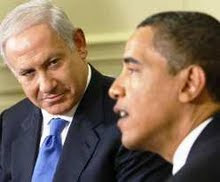

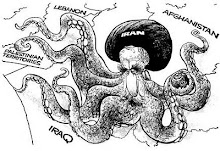






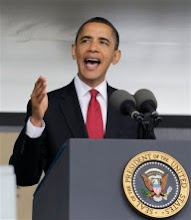
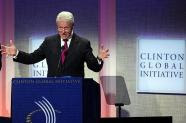











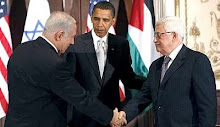
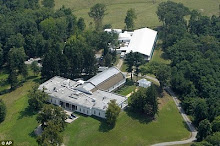




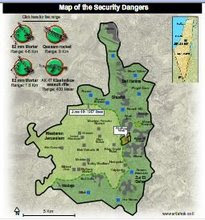













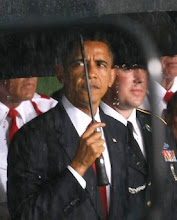

















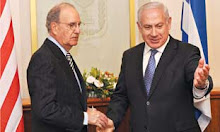



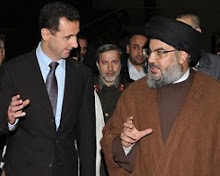


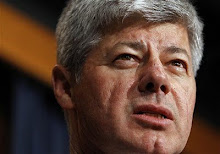







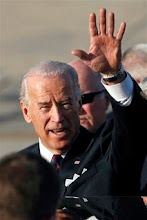


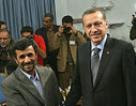+and+Iran%27s+Ahmadinejad.jpg)


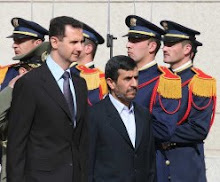


















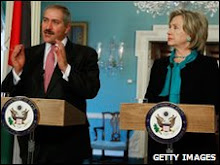


















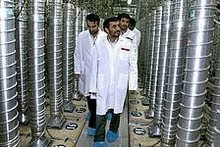





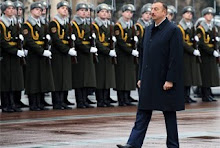






















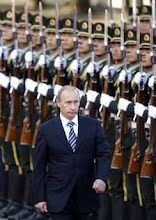



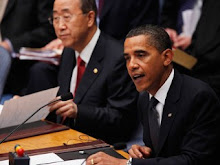
.jpg)


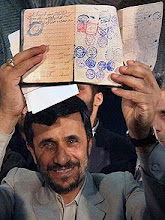

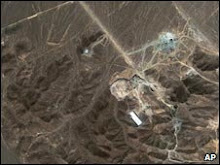




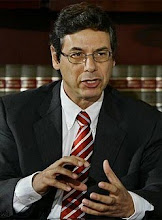







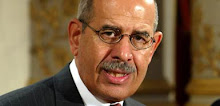


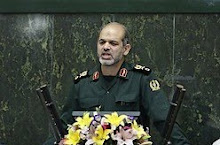






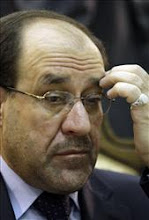










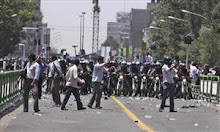.jpg)
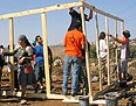




.jpg)











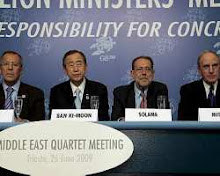
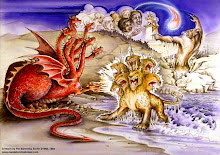

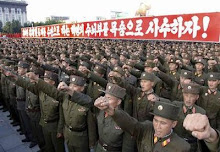



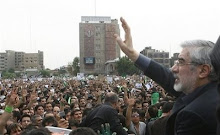








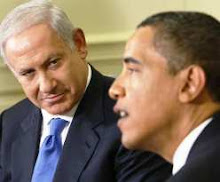

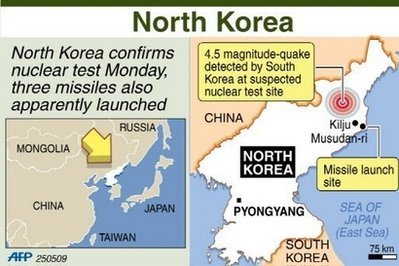





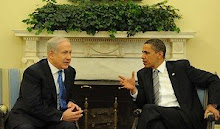




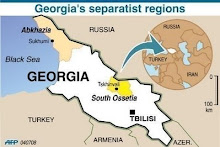



































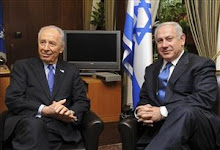





















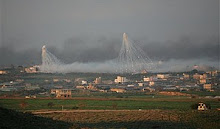

















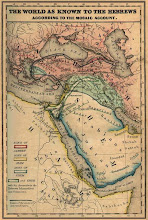




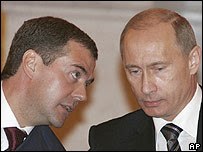

































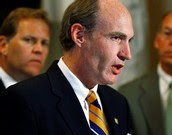.jpg)















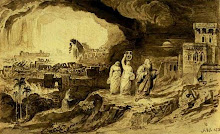








































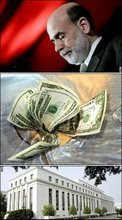



































+and+FM+Livni.jpg)
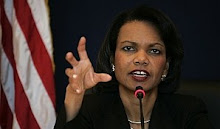

























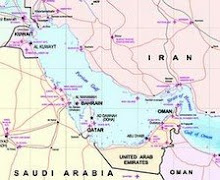















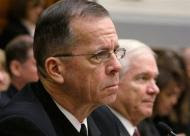




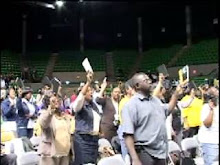











































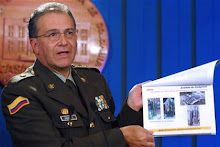

















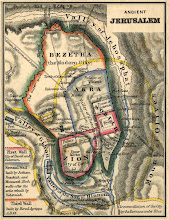






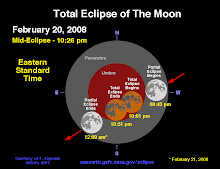







No comments:
Post a Comment